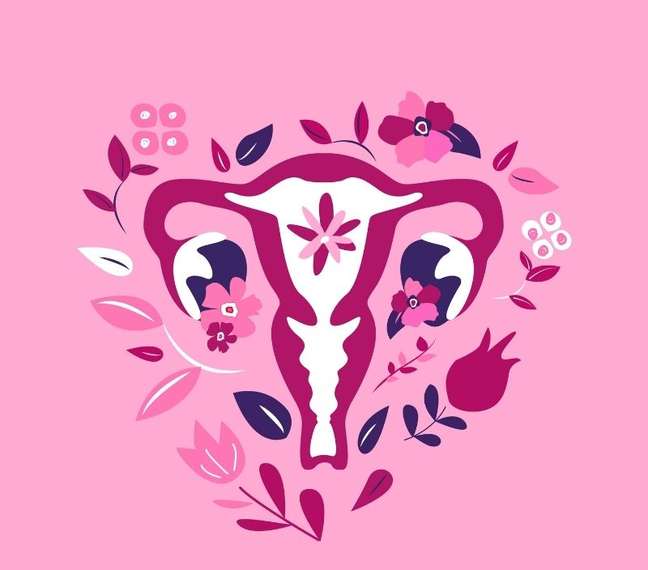If you can’t carry disposable pads anymore, it’s time for a change! Find out why join sustainable alternatives

Although menstruation is still a big taboo for many people, some women have increasingly positioned themselves on the subject, raising issues such as women’s empowerment and impacts of menstruation on the planet – on average a woman can use up to fifteen thousand tampons and tampons throughout her life and the fact is: disposable ones have 90% plastic in their composition and can take more than 400 years to decompose, according to a survey conducted by the Akatu Institute.
With this, alternative methods are gaining ground and proving that the range of options is not as narrow as it seems when it comes to menstrual products. Cups, menstrual discs, pads and panties have arrived to show that the impact of menstruation on the planet can truly be reduced.
But although harmless and, in practice, little different from the already known disposable tampons and internal absorbents, reusable menstrual items still make many people turn up their noses at the idea of having contact with their own blood. And yes, even the most passionate about sustainability fall into this category.
With that in mind, here are some reasons to help you demystify reusable methods and say goodbye to disposables.
1. Everything has a beginning
If you’re afraid of giving up disposables forever, but want to put them aside, cloth sanitary pads can be a good transition as they are less invasive than collectors, for example.
The mechanics are the same, but with one small difference: nothing is thrown away after use! And, normally, the fixing of the absorbent in the panties is done with the help of buttons and not with an adhesive.
2. No problem!
Throw the first stone if you have never experienced that tingling sensation down there due to the glue present in disposable pads. According to gynecologist Fernanda Schier de Fraga, in contact with the vulva, “disposable pads can make some patients complain of discomfort and allergies”.
Such a situation is practically non-existent when it comes to ecological methods since, in addition to not having adhesive glue, most are made with hypoallergenic materials.
3. Alternative methods are safer than they appear
Still considering the discomfort that can be caused by disposable pads, the gynecologist explains that it is very important to keep the pH of the vagina and the vaginal flora, composed of fungi and bacteria, in balance. And this is only possible when the region can breathe.
Therefore, it is highly recommended not to stuff the vulva with tight-fitting pants or disposable pads. And this is where the advantage of alternative methods comes into play: reusable and absorbent fabric panties are made of cotton, which makes them much more breathable.
It is worth remembering that vaginal pH imbalance can lead to diseases such as candidiasis and bacterial vaginosis. Although both are not sexually transmitted, “these are changes that generate discharge, as well as being unpleasant for patients,” as Fernanda explains.
The gynecologist also warns that the best type of underwear for women is cotton, preferably 100% cotton, and advises women to sleep without underwear to avoid unbalancing the pH of the vagina.
Also according to the doctor, when it comes to menstrual cups, which are not lost inside the vaginal canal, the advantage is that, in addition to being used for up to 12 hours, they do not present the risk of causing the so-called toxic shock syndrome. Very common in patients using tampons, this syndrome consists of a proliferation of bacteria due to blood blocked in the product.
4. But what about the smell?
Fernanda explains that the menstrual blood has no smell.
Upon contact with the air and the chemicals present in disposable sanitary pads, the blood begins to oxidize and, consequently, to produce a stronger odor. And there is also another important point that aggravates that unpleasant smell: disposable ones are poorly breathable, making the area stuffy, humid and ideal for the proliferation of bacteria.
Even according to the gynecologist, the smell in the blood can indicate some pathology, so it is always important to consult your gynecologist and be aware of signs such as discharge and odors.
5. Sustainable and economical
Have you ever stopped to think about your monthly spend on menstrual products?
This expense can be greatly reduced by opting for reusable methods. Tissue pads and menstrual panties can have a shelf life of 5 years, depending on the manufacturer and usage. The life span of the collectors can reach 10 years.
Therefore, it is important to always follow the manufacturer’s cleaning guidelines and only store sanitary pads or panties when you are sure they are not wet. In addition to using the menstrual cup only after it has been properly washed.

Maybe using a cloth pad or cup won’t make you love your period. Alright then. But, as Fernanda points out, what matters is the self-knowledge that these methods bring. Certainly the reusable options will bring you closer to your period and your body, giving you a greater sense of what your blood and flow are like, for example.
There are several options on the market today, and the sizes available include the most diverse types of vulva and flow! The advice is to research a lot before buying and choose the method that best suits your needs. Planet Earth thanks you!
Source: Fernanda Schier de Fraga, gynecologist and obstetrician and professor at the Faculty of Medicine of the Pontifical Catholic University of Paraná.
Source: Terra
Benjamin Smith is a fashion journalist and author at Gossipify, known for his coverage of the latest fashion trends and industry insights. He writes about clothing, shoes, accessories, and runway shows, providing in-depth analysis and unique perspectives. He’s respected for his ability to spot emerging designers and trends, and for providing practical fashion advice to readers.








